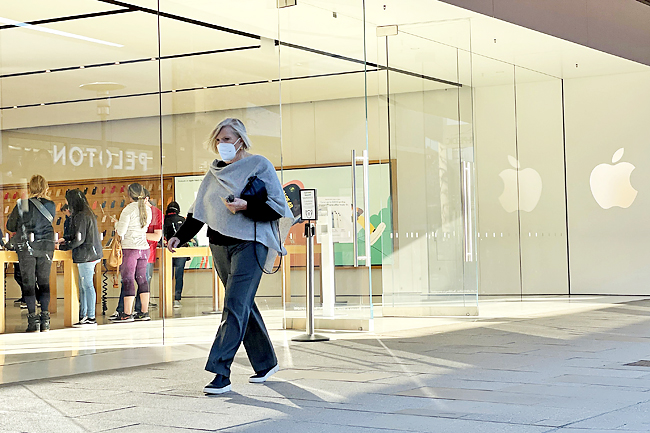Michael Liedtke
SAN RAMON, CALIFORNIA (AP) – Apple shook off supply shortages that have curtailed production of iPhones and other popular devices to deliver its most profitable holiday season yet.
The results posted on Thursday for the final three months of 2021 help illustrate why Apple is looking even stronger at the tail end of the pandemic than when the crisis began two years ago.
At that point, Apple’s iPhone sales had been flagging as consumers began holding on to their older devices for longer periods. But now the Cupertino, California, company can’t seem to keep up with the steadily surging demand for a device that has become even more crucial in the burgeoning era of remote work.
“iPhone has never been more popular,” Apple CEO Tim Cook crowed during a conference call with analysts. The company’s Mac computers and, to a lesser extent, iPads also continue to proliferate. With the iPhone leading the way, Apple disclosed it now has more than 1.8 billion devices worldwide now in use.
Apple’s inability to fully satisfy the voracious appetite for iPhones stems from a pandemic-driven shortage of computer chips that’s affecting the production of everything from automobiles to medical devices.
But Apple so far has navigated the shortfalls “in almost Teflon-like fashion”, Wedbush Securities analyst Daniel Ives said in a Thursday research note. That deft management enabled Apple to report iPhone sales of USD71.63 billion for the October-December period, a nine per cent increase from the same time in the previous year.

Those sales gains would have been even more robust if Apple could have secured all the chips and other components needed to make iPhones. That problem plagued Apple’s July-September quarter when management estimated that supply shortages reduced its iPhone sales by about USD6 billion. Without specifically quantifying the amount, Cook said the supply shortages delivered an even larger blow to its sales in the most recent quarter.
Those constraints dealt the biggest blow to the iPad, whose sales fell 14 per cent from the year-earlier period. Management predicted the supply problems won’t affect sales as dramatically during the current quarter ending in March.
Despite the drag caused by the shortages, Apple still earned USD34.63 billion, or USD2.10 per share, a 20 increase from the same time in the previous year. Revenue climbed from the previous year by 11 per cent to USD123.95 billion. Apple’s ongoing success help push the company’s market value above USD3 trillion for the first time earlier this month. But its stock price has tumbled 13 per cent since hitting that peak amid worries about a projected rise in interest rates aimed at dampening the torrid pace of inflation that has been fuelled in part by supply shortages.
Its shares gained more than five per cent in Thursday’s extended trading after the Apple’s fiscal first-quarter numbers came out.
The supply issues looming around Apple’s devices have magnified the importance of the company’s services division, which is fuelled by commissions from digital transactions on iPhone apps, subscriptions to music, video streaming and repair plans.
For now, though, the services division is still booming. Its revenue in the past quarter hit USD19.52 billion, a 24 per cent increase.







